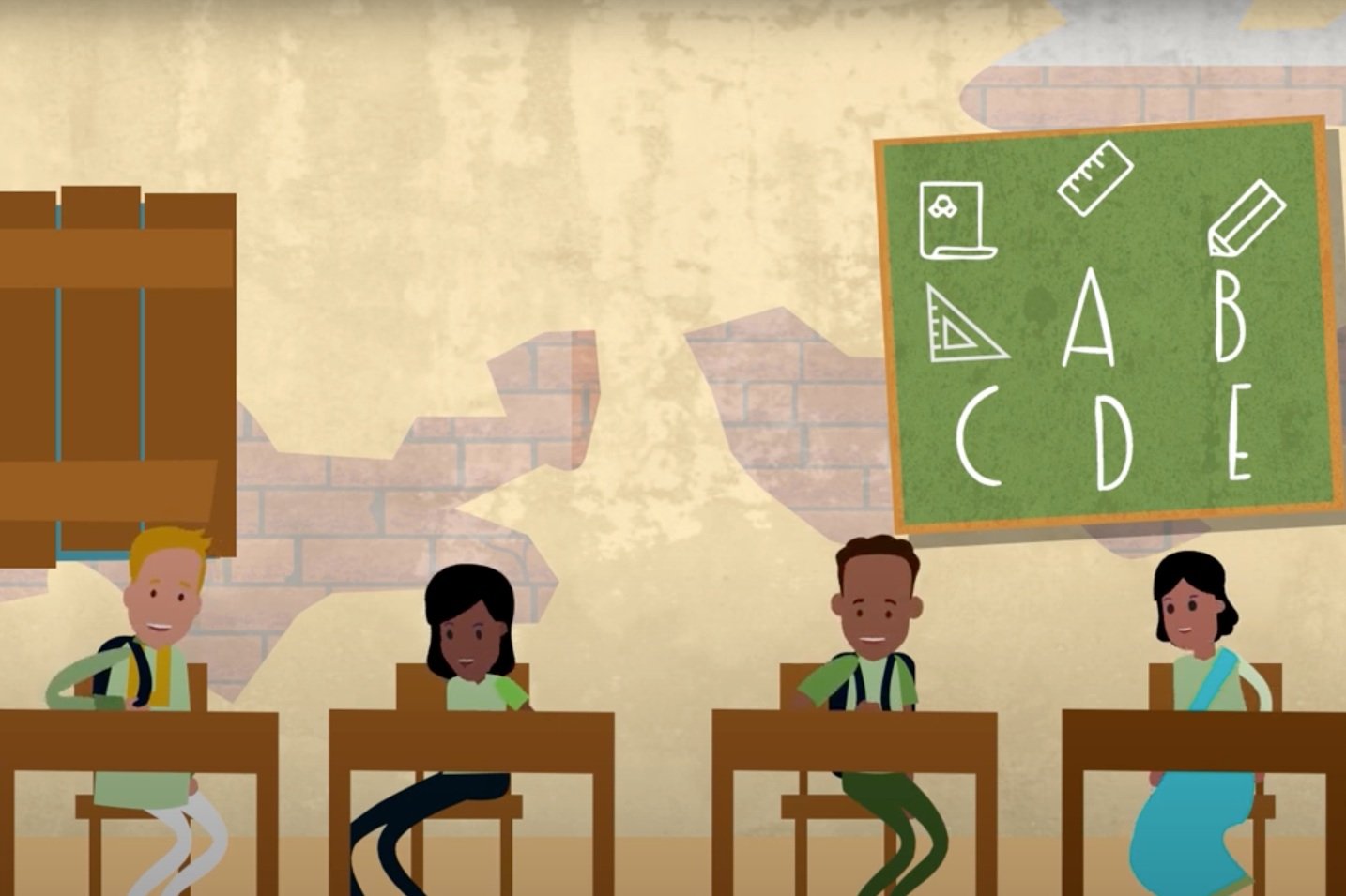Resources
From Evidence to Action for Education in Emergencies: TIES Collection of 3EA E-Cubed Research and Engagement
The purpose of this product is to summarize and showcase the achievements on communication of the evidence and lessons learned from the 3EA E-Cubed project. In sum, we generated 59 total communications products across 12 different formats targeting diverse audiences. These products are presented in 12 different formats, to cater to these diverse audiences and maximize the reach and impact, ranging from academic journals, policy briefs, and datasets to press releases, blogs, webinars, interactive online tools, and more.
How to Support School-Aged Children Living in Crisis Contexts? Evidence-based Recommendations for Stakeholders
Science is the most useful when it catalyzes change. In this tool, we provide actionable recommendations and guidance on how to best support education in emergencies, to get the evidence into the capable hands of the education stakeholders.
Research Near & Far: Global TIES for Children
IHDSC met with NYU Global TIES for Children (TIES) researchers Lindsay Brown and Ha Yeon Kim to discuss their research with students in Niger and the insights and challenges that come with doing research in conflict-affected areas. This conversation was edited for clarity and length.
Teachers’ Observations of Learners’ Social and Emotional Learning: Psychometric Evidence for Program Evaluation in Education in Emergencies
Rigorous evaluation of social and emotional learning programs requires the use of measures that provide reliable and valid information on the meaningful differences in children’s social emotional skills across treatment and control groups, as well as changes over time. In contexts affected by conflict and crisis, few measures can provide the evidence required to support their use in program evaluations, which limits stakeholders’ ability to determine whether a program is working, how well it is working, and for whom.
Reimagining Education in Emergencies: Lessons from research in three crisis-affected countries RewirEd Summit virtual session
The pre-recorded video was disseminated to global key stakeholders participated in the RewirEd summit.
التعليم في حالات الطوارئ
الوصف: يركز هذا الفيديو التوضيحي على "إنشاء الأبحاث": الدروس المستفادة والنصائح العملية للباحثين وأصحاب المهنة لتوجيه المجال نحو إنشاء الأبحاث. للمزيد من المعلومات حول هذا العمل، اقرأ هنا: https://www.cambridge.org/core/journa..
L'éducation en Situations d'Urgence : Vidéo Explicative des Preuves Pour l'Action (3EA)
Cette vidéo explicative est axée sur « Construire une science pour l'action » : leçons tirées et conseils pratiques pour les chercheurs et les praticiens afin de faire avancer le domaine de l’éducation vers la construction d'une science pour l'action.
Education in Emergencies: Evidence for Action (3EA) Explainer Video
This explainer video is focused on “Building a Science for Action”: Lessons learned and practical advice for researchers and practitioners to move the field towards building science for action. The 3EA initiative, born out of a research-practice partnership between TIES and the International Rescue Committee, aims to generate evidence and tools on what works to improve children’s holistic learning and development. This work also aims to improve the quality of program implementation and to answer the questions of what works, how, for whom, and under what conditions.
TEACHERS IN CONFLICT CAN SUPPORT STUDENTS’ MENTAL HEALTH — IF WE INVEST IN THEIRS
Few of us were prepared to take on the role of teacher in the wake of COVID-19 school closures – one we often take for granted. Indeed, if this past year has taught us anything, it should be the value of student contact with a teacher at school. Research confirms that teachers are the most important school-based factor in student learning, and their effects can be detected well into adulthood. But while we expect teachers to don the hats of social worker, psychologist, and mentor, among others, we collectively do little to support them in their work. This is especially true in developing countries, where teachers are often embedded in and products of a struggling educational system that cannot or does not adequately support them. As millions of children return to schools in the wake of the COVID-19 pandemic, we have a moral obligation to support the well-being of teachers and, by extension, a healthier classroom culture. An investment in social-emotional learning (SEL) can help.
Can tutoring informed by social-emotional principles improve learning outcomes? A look across multiple conflict-affected contexts
What can be done to improve learning outcomes for the millions of children growing up in conflict-affected societies and enrolled in under-resourced school systems? How can the global community safeguard the right of every child, including those in crisis settings, to a quality education and position them to heal, learn and thrive? What are the best interventions that achieve the greatest outcomes for the most children in humanitarian contexts?
Improving Education for Refugee Children: Insights from Rigorous Research
By the start of 2018, 25 million refugees fled across international borders to seek protection. Over half of these refugees are under the age of 18. Little rigorous evidence exists on strategies to promote refugee children’s academic learning and socio-emotional development. What role can universities play in helping to close this critical gap in evidence? This panel describes the state of education for refugee children broadly, zeros in on the conditions of refugee children in Lebanon and Niger, and summarizes insights evaluating innovative strategies to promote the academic learning and social-emotional development of the children.










